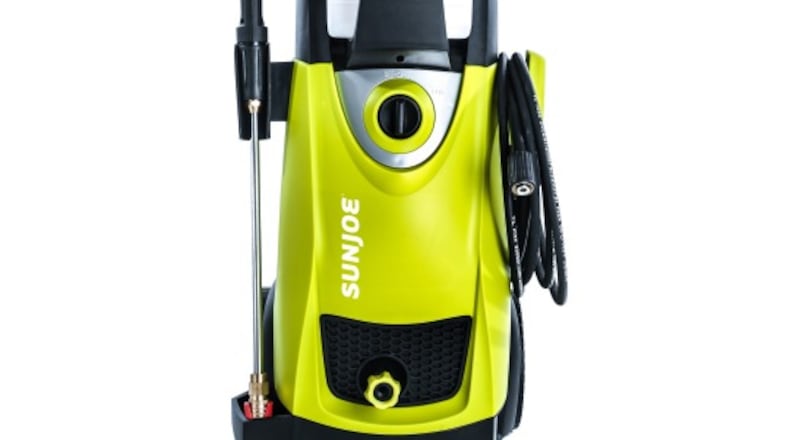If the outside of your house, your deck and patio area are looking a bit grungy, you could grab your garden hose, a bucket, some soap and a stiff brush. Good luck with that. It's a thankless chore that will probably keep you sweating over the course of a few weekends. On the other hand, a pressure washer can make that cleanup a much less arduous task at a fraction of the time.
Joseph Cohen, CEO of Snow Joe + Sun Joe, a company that develops a variety of outdoor tools, including pressure washers, offers some solid advice when it's time to invest in a pressure washer.
"Consider the types of projects you will be using it for. You want the pressure - or the PSI - of your washer to match your use. For heavy duty jobs, such as washing house siding, look for a higher PSI number. For light to medium duty jobs - like cleaning a car - a lower PSI will help get the chore done," said Cohen.
He notes that it's also important to look for a pressure washer with options – various nozzles and multistage soap dispensers. And don't ignore a warranty. Sun Joe offers two years on its pressure washers.
Investing in a pressure washer will pay off within a few uses. If you do your research, you'll find that renting a pressure washer once is almost as much as purchasing one.
"While many pressure washers are gas-powered, the Sun Joe SPX3000 is electric. This makes pressure washing extremely easy with very little maintenance to worry about. And, its intuitive design is perfect for a first-time or longtime user," said Cohen. "Anything from siding, RV's, sidewalks, decks, boats, cars, lawn equipment and driveways can be pressure washed to achieve a clean surface."
Pressure washing dos and don'ts
Do wear proper eye, face and hand protection when operating a power washer. And if you're using a gas pressure washer, which is noisier than an electric model, wear earplugs.
Do keep the jet away from live electrical equipment, lights and air conditioners.
Do attach nozzles and accessories before starting the machine.
Do keep hands and feet clear of the cleaning nozzle at all times.
Do start with the nozzle about two feet away from the cleaning surface and move closer as needed, but no closer than six inches.
Do work from top to bottom, not the other way around because dirt and mildew will run down over the cleaned section.
Do direct the water at a downward arc when cleaning wood siding. Spraying wood head-on can damage the siding.
Don't leave the nozzle in a closed position for more than a minute or two while the equipment is running. The pump may overheat.
Don't aim the power washer at an upward angle when cleaning siding. This can drive water behind the siding. Also, the force of the water can lift the siding from the wall.
Don't spray stucco, brick or masonry walls straight on. The force of the spray can cause water to penetrate cracks in the walls and cause damage within.
Don't spray windows or glass doors. The force is strong enough to shatter them.
Don't let the machine run for several minutes without pulling the trigger gun.
Don't spray a person or pet. A pressure washer is far more powerful than a garden hose and can cause serious injury.
Don't use a pressure washer to wash your car without checking with the washer's manufacturer. Using too much pressure can damage your car's paint.
About the Author
Keep Reading
The Latest
Featured



